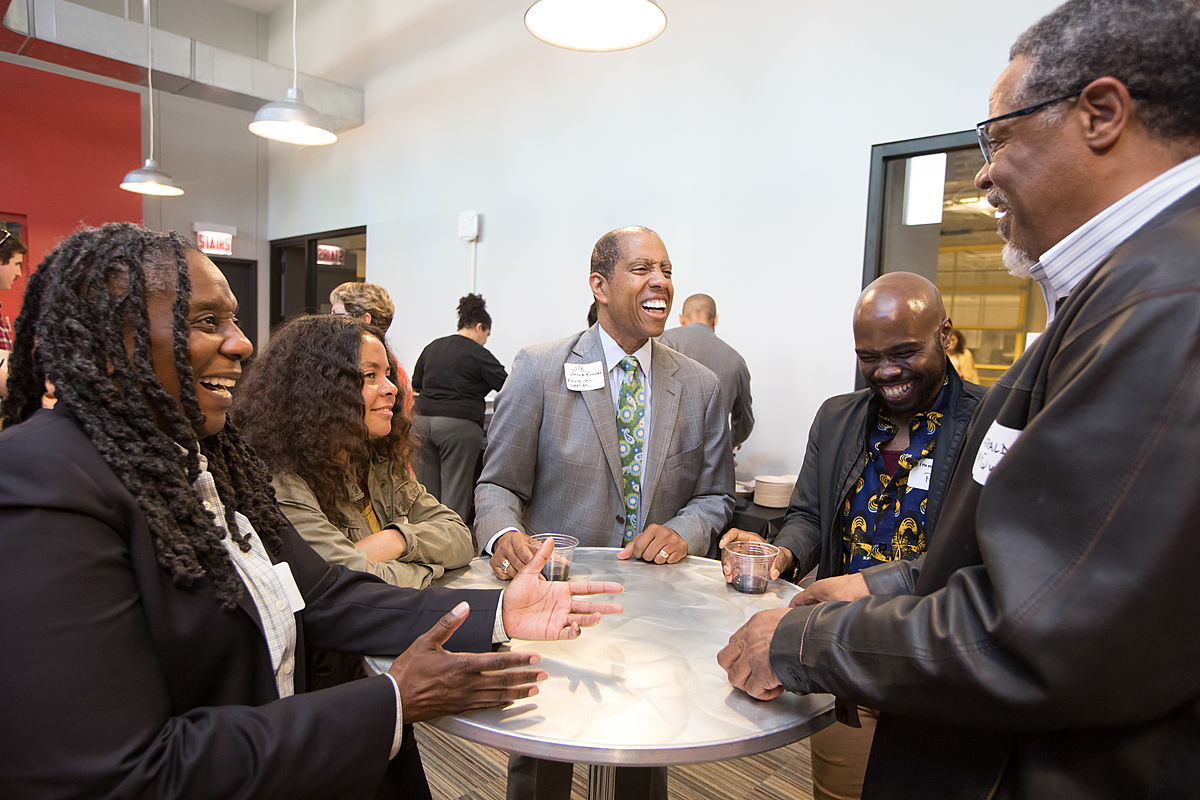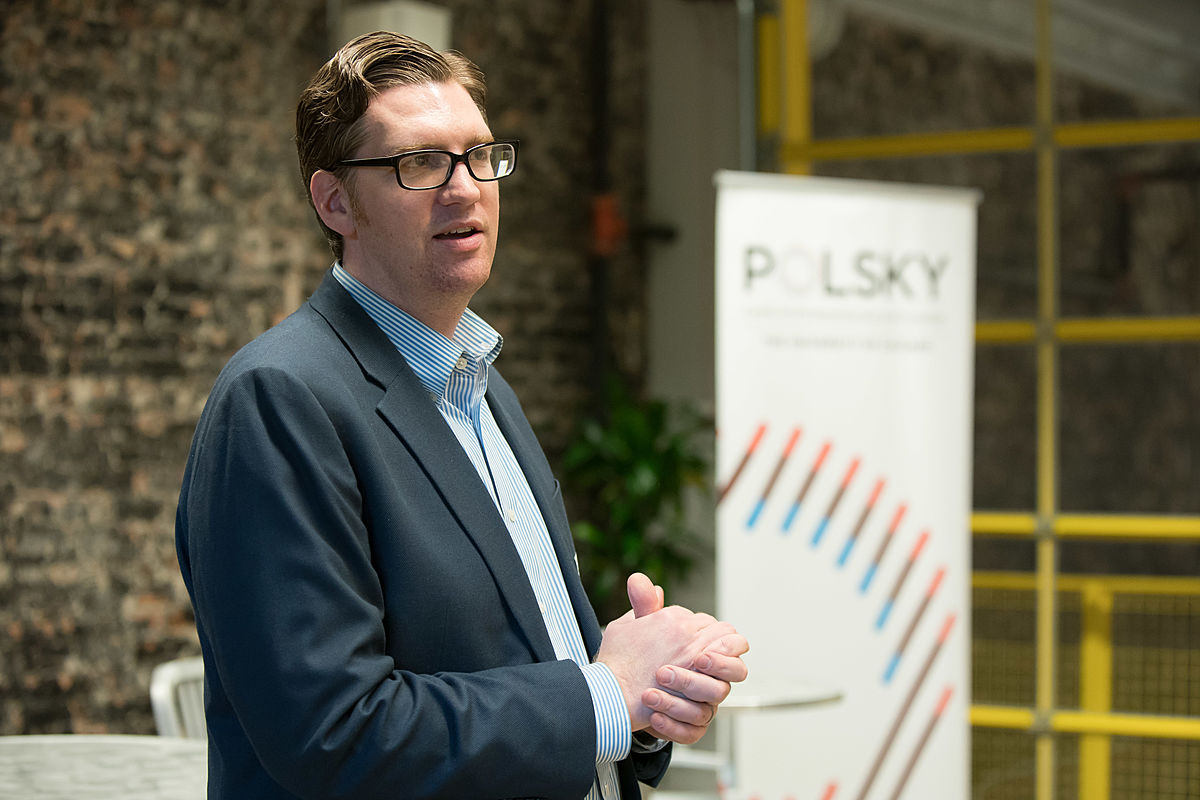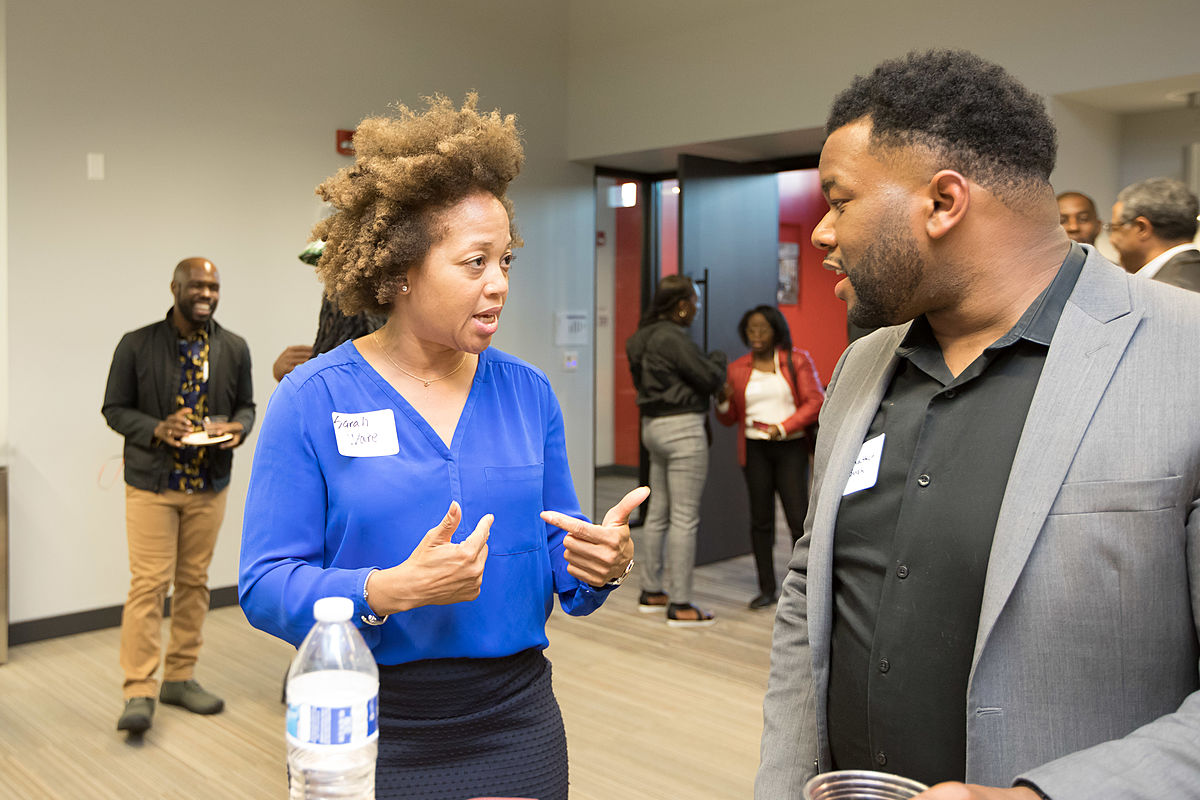It seemed to Omar Kamran that fast-food gigs were the only jobs available to young people in his South Side neighborhood of Chicago Lawn— so in 2017, he and a partner co-founded Magnolia Screen Printing, a social enterprise that makes screen-printed apparel, creates sustainable jobs, and provides skills training. “There are a lot of young people that need this opportunity,” Kamran told the Chicago Reader. “Our goal is to be that really good first job that young people can have."
After 18 months in business, Magnolia got a business boost when the company was chosen to be part of the most recent cohort of UChicago’s Polsky Small Business Growth Program, which provides small-business owners with personalized consulting services from Booth School of Business faculty, coaches from the Polsky Center, and students.
Based at UChicago’s Polsky Center for Entrepreneurship and Innovation, the program is supported by the UChicago Office of Civic Engagement and funded by JP Morgan Chase as part of its six-city Ascend 2020 initiative. In Chicago, Chase is investing $40 million to support neighborhood-based, minority-owned businesses that have the potential to grow, create jobs, and build economic opportunity in their communities on the South and West Sides.
On June 13, Kamran and fellow Ascend 2020 alumni and partners gathered to celebrate and share notes at the Polsky Center.

Opening doors to economic opportunity
Chase created Ascend 2020 to address economic gaps faced by minority-owned businesses. The median white-owned firm has revenue 5 times that of the median African American–owned firm, and 1.5 times that of the median Latinx-owned firm — a gap that reflects minority business owners’ systemic lack of access to resources for growth, including business education and capital.
At the same time, minority-owned firms have enormous potential to drive economic activity and employment in Chicago’s neighborhoods: A study by the Initiative for a Competitive Inner City showed that 70 percent of jobs in Chicago’s inner city came from small businesses, compared to 58 percent of the city overall.
Ascend 2020 aims to stimulate the growth of these businesses and create local jobs by connecting minority entrepreneurs to business schools, services providers, suppliers, and financial institutions that can help them succeed.
In Chicago, Booth UChicago students teams serve as consultants to small businesses, while teams from Northwestern University’s Kellogg School of Management work with larger businesses — a unique setup that enables Ascend 2020 to support more companies in Chicago than in its other locations.

“We have something in Chicago that we don’t have in any other city: Two world-class universities that are partnering,” said Charlie Corrigan, vice president of the JP Morgan Chase Foundation. “Our conversations together around the ways we can bring the talent and expertise of these prestigious organizations into communities to work with small businesses helped us set up the Ascend program. We’ve worked with more than 80 businesses here already.”
Participants grow through improved access to management, markets, and money
Ascend 2020’s other Chicago partners include the Local Initiatives Support Corporation (LISC), a community development organization; Accion, a nonprofit lending network specializing in small business loans; and Chicago Anchors for a Strong Economy (CASE), which connects small businesses with the buying power of anchor institutions like hospitals and universities.

“The program provides access to the three Ms that businesses need: management, markets, and money,” said Alyssa Berman-Cutler, executive director of community development in the Office of Civic Engagement. “UChicago and Northwestern are here for the management part, Accion is helping with the money part, and CASE is helping to think about making markets. That ecosystem is really the strength of the program.”
The management-strengthening piece of the Small Business Growth Program takes place over eleven weeks each fall and spring as teams of students, guided by Booth adjunct associate professor of marketing Craig Terrill, work in partnership with client companies to solve real-world business challenges and lay out strategies for growth.
Clients represent a diverse range of businesses on the South and West sides, from retailers, restaurants, and wellness studios to legal services providers and real estate brokers. Small Business Growth Program consulting teams work closely with founders to take a deep dive into each business, identify its needs, and create strategies for addressing them.
Kamran says that he regards his student consultants as thought partners in figuring out how to move Magnolia to a new level. “For our first couple of years, we got contracts strictly through word of mouth,” he said, “and the team was able to pinpoint our potential areas for growth, [including] increasing our online presence and being intentional about dedicating more energy and resources to fleshing that out. Since we started the program, we’ve had an influx of customers, so now it’s also about how we manage that.”
Polsky’s doors are open to all community entrepreneurs
The Small Business Growth Program is just one of the many ways the Polsky Center supports community entrepreneurs. The Polsky Exchange, a 34,000-square-foot co-working space in downtown Hyde Park, serves more than 4,200 members from the University of Chicago and the surrounding neighborhoods. Community members with no affiliation to the University can join the Polsky Exchange for a small monthly fee, which gives them access to mentors, networking opportunities, and more than 100 events annually.
Sarah Ware, another attendee at the June 13 event, was part of the Fall 2018 cohort of the Small Business Growth Program. She particularly appreciated the fact that the program was tailored the needs of her business, Ware Realty Group, a full-service real estate brokerage that provides commercial retail leasing and market research. “They met me where I was,” she says, providing consulting expertise on a range of specific issues Ware needed to address to prepare her business to grow.

For example, Ware was thinking about hiring her first employee, so her consulting team helped her define the job. They guided her through the implementation of customer relationship management software, helped her assess her competition, and did a revenue analysis that informed an action plan to grow her business with government and commercial clients.
Ware, a South Shore resident, expects that the program will have helped drive 20 percent revenue growth for her firm by the end of 2019. Since its 2017 launch, the 37 South Side business owners who have taken part in the Small Business Growth Program report that they have increased revenue by about $700,000, raised about $600,000 in capital, and created seven new jobs. To date, 90 percent of participating businesses are minority-owned and 70 percent are women-owned.
Applications for the Fall 2019 program will open in July 2019. Learn more about eligibility and sign up to receive program announcements here.



